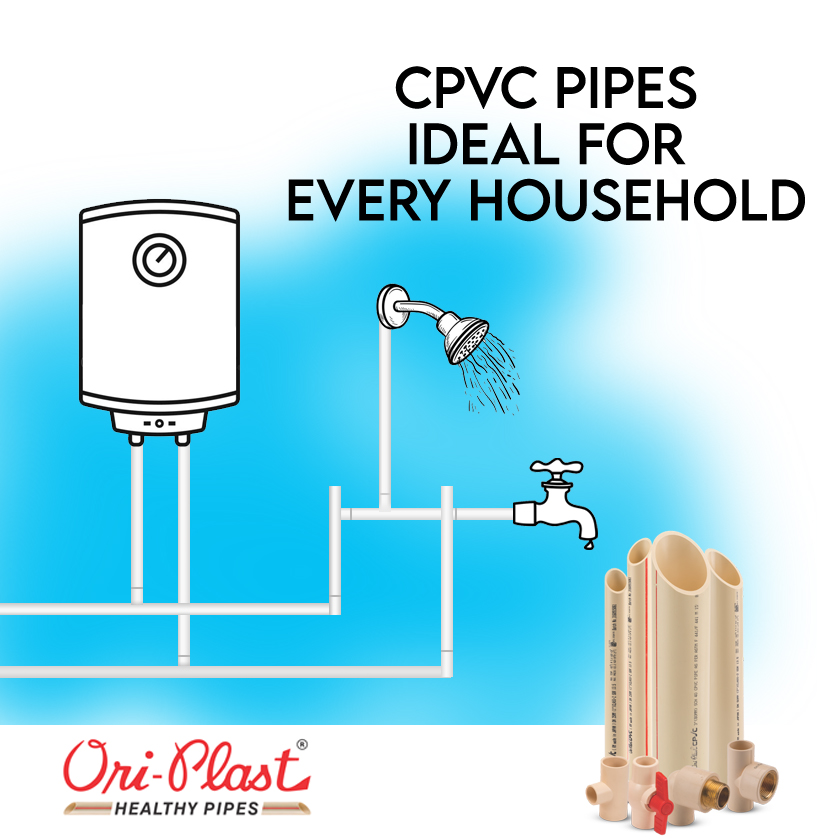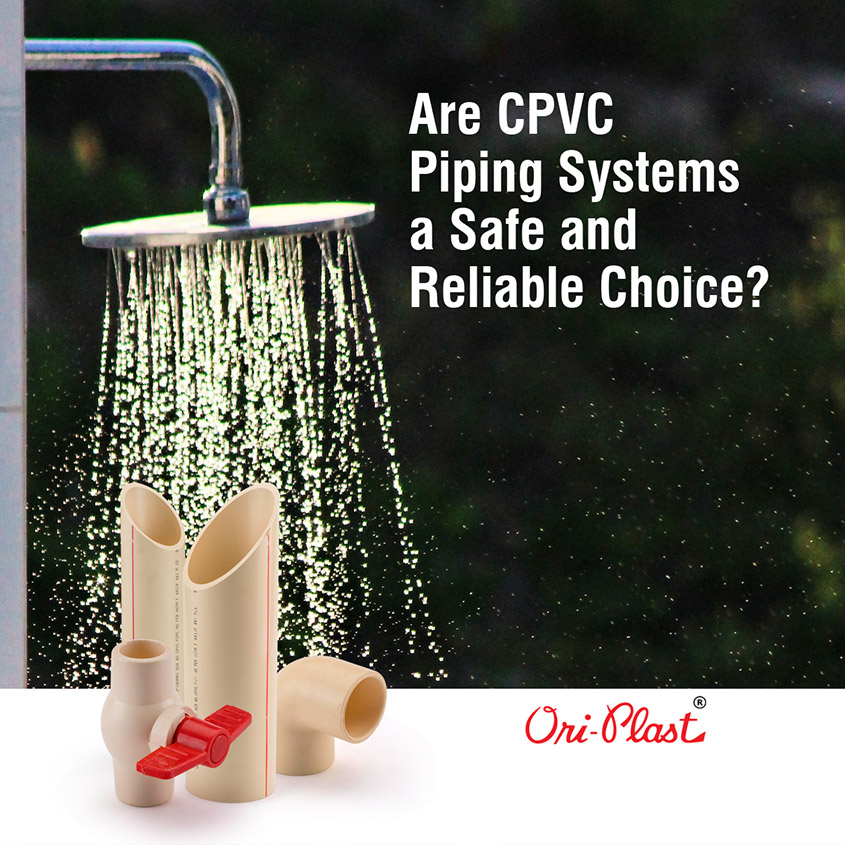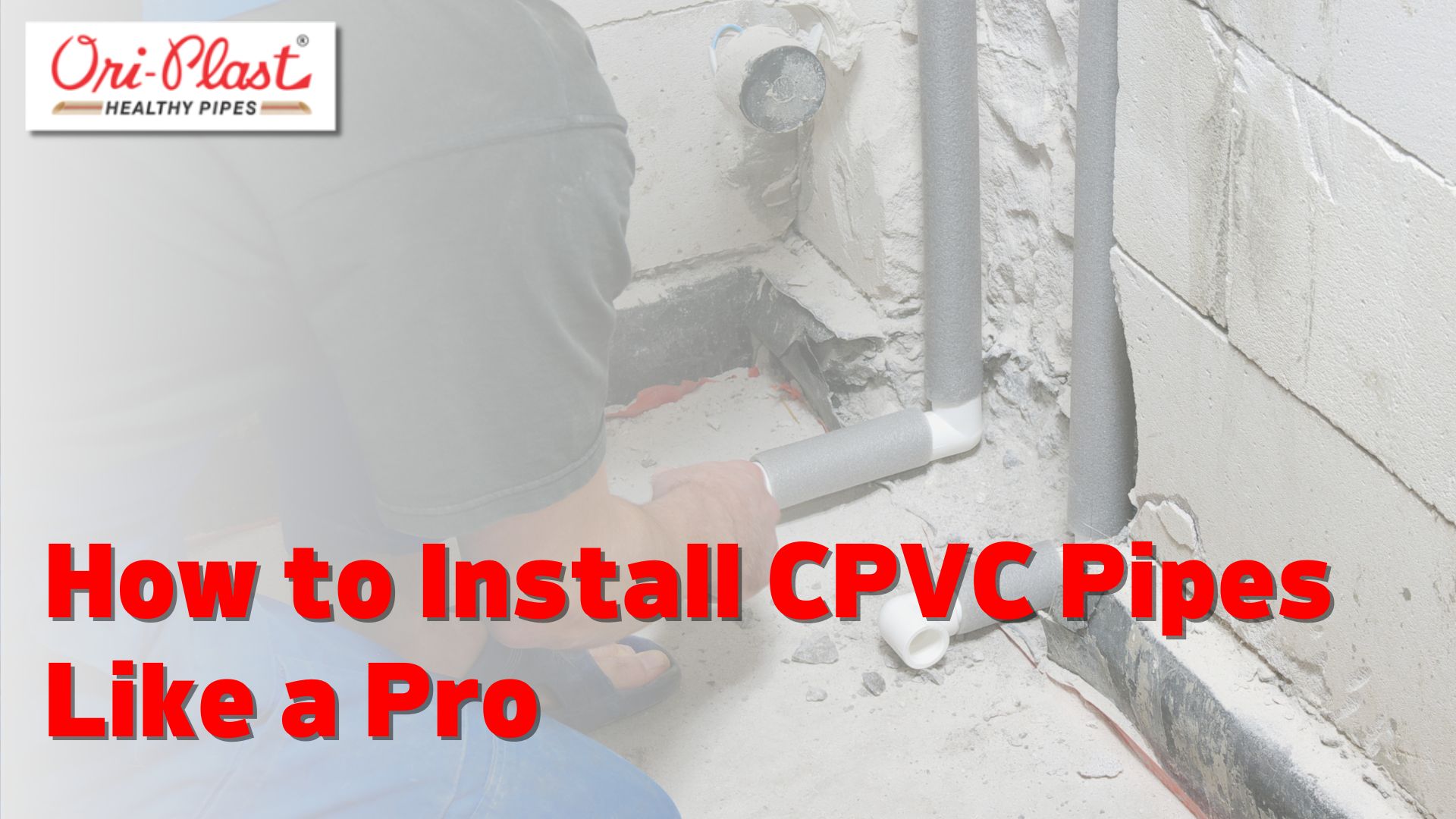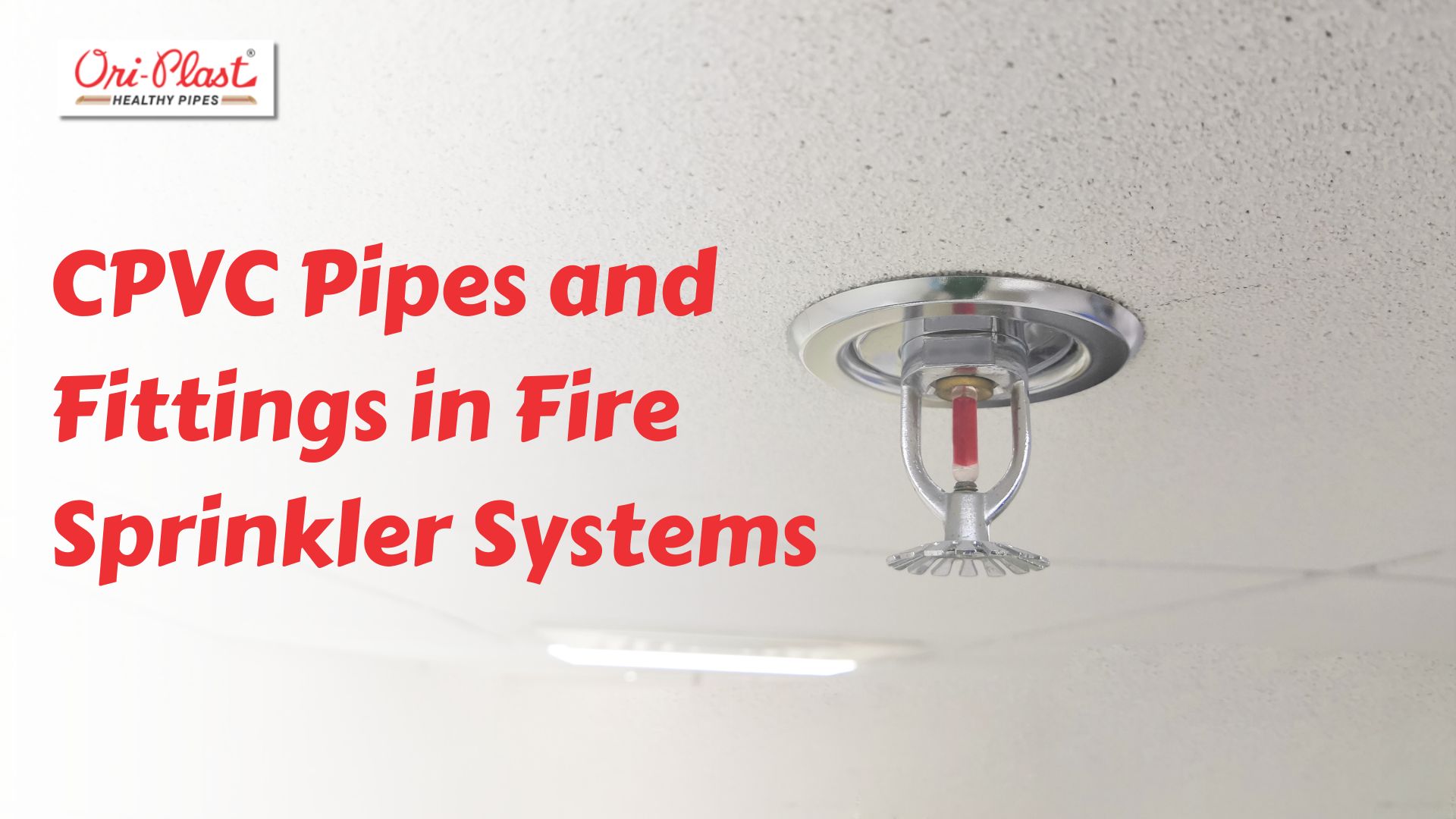Choosing pipes and fittings for residential plumbing projects can have several long term implications. People often fail to consider them initially. We have discussed the top FIVE factors that should influence your decision while choosing residential piping material. Stay with us to learn about the best material for residential piping.
The top FIVE factors: choosing residential pipes
- Water safety is the most critical factor behind the choice of piping material in any residential project. Residential pipes mainly involve supplying potable water and water for other human usages like cooking, bathing, washing vegetables. So, we must deliver contamination-free, toxicity-free water to homes and residential apartments.
- Microbial growth resistance - This is another cause of concern that we must be careful about while choosing material for residential pipes. The uneven inner surface of water-carrying pipes may lead to the deposition of silts and microbial growth inside the pipelines. So, a piping material should be suitable for manufacturing a smoother inner surface. It also helps to minimize cross-sectional blockage from depositions.
- Chemical resistance - Materials highly susceptible to chemical and electrochemical reactions are not suitable for carrying residential-use water. Such materials easily cause leakage and breakage of pipes disrupting supply and increasing the chances of contamination.
- Low maintenance requirement - Disruption of the water supply can lead to a significant commotion in residential buildings and housing societies. Besides, regular maintenance increases the operational cost and lifecycle ownership cost of residential plumbing systems.
- Heat conductivity - Cooling water during summer and reheating during winter seasons require significant expenses on energy usage. The ideal piping material should allow minimal heat conductivity and better energy efficiency.
Chlorinated polyvinyl chloride or CPVC pipes for residential projects
Compared to metal pipes and regular PVC plumbing pipes, Chlorinated PVC pipes and fittings are perfectly suitable for residential plumbing works. The reason is the characteristics of CPVC as a thermoplastic material.
- The highest material quality of OriPlast cPVC keeps pipes and fittings.
- Chemical and electrochemical resistance make cPVC pipes and fittings safe for carrying drinking water. The characteristic also makes CPVC corrosion-free even at high temperatures and pH levels. So, you can use CPVC pipes in aggressive soil conditions and concealed plumbing.
- Extra smooth inner surface allows high-pressure water flow, minimal chance deposition inside pipe and chances of microbial growth. So, CPVC pipes are suitable for supplying healthy, hygienic and safe water.
- CPVC offers low heat conductivity. It makes the material suitable for carrying hot and cold water with high energy efficiency. Unlike traditionally used metal alternatives, CPVC pipes allow minimal heat loss.
- The regular maintenance requirement for CPVC pipes is negligible. It offers lower lifecycle ownership costs than metal alternatives.
- The material strength of Chlorinated PVC allows manufacturing pipes and fittings with a thinner outer wall without compromising structural sturdiness. It makes pipes lightweight, easy to transport and install, reducing overall project expense.
Best CPVC pipes & fittings
Ori-Plast is one of India’s top CPVC pipe manufacturers, with a presence across geographies and in numerous export markets. The company’s CPVC pipes are impeccable in quality and competitive in pricing at the same time. With Ori-Plast, you make instant savings and enjoy the low ownership cost of CPVC pipes over the lifecycle. Ori-Plast’s specially designed SURETITE solvent cement makes jointing cPVC plumbing pipes and fittings extra solid and durable. Call Ori-Plast for more information on CPVC pipes and fittings range.




